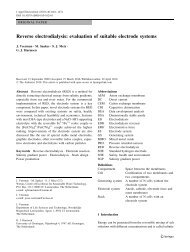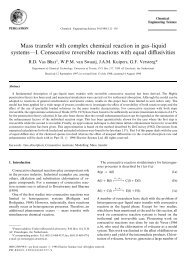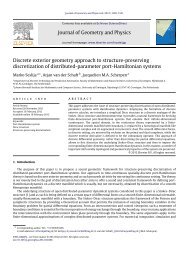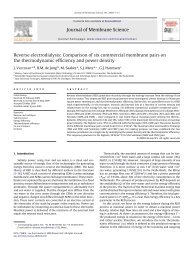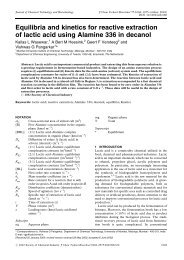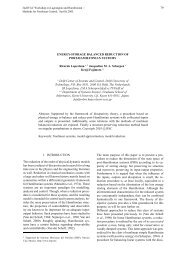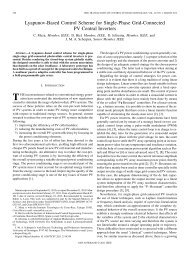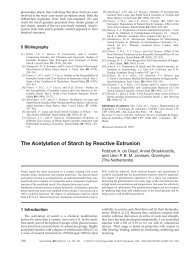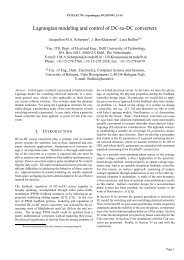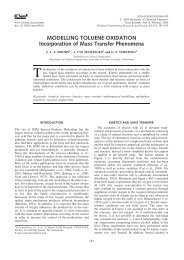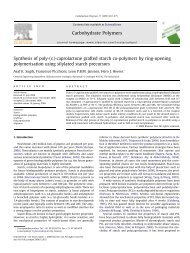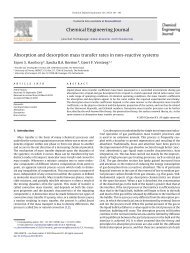FUZZY CLUSTERING, GENETIC ALGORITHMS AND NEURO ... - ITM
FUZZY CLUSTERING, GENETIC ALGORITHMS AND NEURO ... - ITM
FUZZY CLUSTERING, GENETIC ALGORITHMS AND NEURO ... - ITM
You also want an ePaper? Increase the reach of your titles
YUMPU automatically turns print PDFs into web optimized ePapers that Google loves.
598 P.F. VAN LITH et al.<br />
Downloaded by [University of Groningen] at 04:43 19 September 2012<br />
In addition, it is required that these models are interpretable, in the<br />
sense that, by analyzing the model, there is a physical understanding<br />
of the process behavior. Many process models are available in a<br />
state-space representation. A framework of mass, component and<br />
energy balances describing the essential process accumulation can<br />
often be derived from given requirements. Within this framework,<br />
effects such as reaction rates or mass transfer are described by static<br />
empirical relations. However, for many processes, these empirical<br />
relations are complex and may have limited validity and, thus, introduce<br />
uncertainty. Examples of such processes are biotechnological<br />
processes and polymerization processes, but in principle, uncertainty<br />
can be present in any process model.<br />
Fuzzy logic could be used to deal with this uncertainty. This technique<br />
is capable of describing highly non-linear relations in a fairly<br />
simple way, without the loss of interpretability that other black box<br />
techniques have. This is a major advantage. In addition, fuzzy logic<br />
is capable of capturing human experience in a transparent way, so<br />
that these can be used to improve the process models in areas where<br />
little or no physical data exists.<br />
By combining fuzzy logic submodels with a physical model framework,<br />
hybrid fuzzy-first principles models are obtained. Combining<br />
black box techniques (such as neural networks) with physical equations<br />
is not new. However, until now, little research has been presented in<br />
which fuzzy logic is used. This paper will argue that, certainly with<br />
respect to interpretability and transparency, fuzzy logic is an extremely<br />
suitable technique to be used in hybrid modeling.<br />
To construct hybrid fuzzy-first principles models, appropriate fuzzy<br />
submodels need to be identified from human experience or process<br />
data. A problem occurs when no process measurements or human<br />
experience is available about the parameter or relationship that is to<br />
be described by a fuzzy submodel. This situation is not unlikely to<br />
appear in a real-life industrial environment. In this case, parameter<br />
or state estimation techniques can be used to solve the problem. The<br />
estimations can then be supplied to a fuzzy model identification technique<br />
to construct the fuzzy submodel.<br />
This paper will present a procedure to construct hybrid fuzzy-first<br />
principles models from process data, by making use of a Kalman<br />
filter for parameter estimation. Furthermore, three different classes



